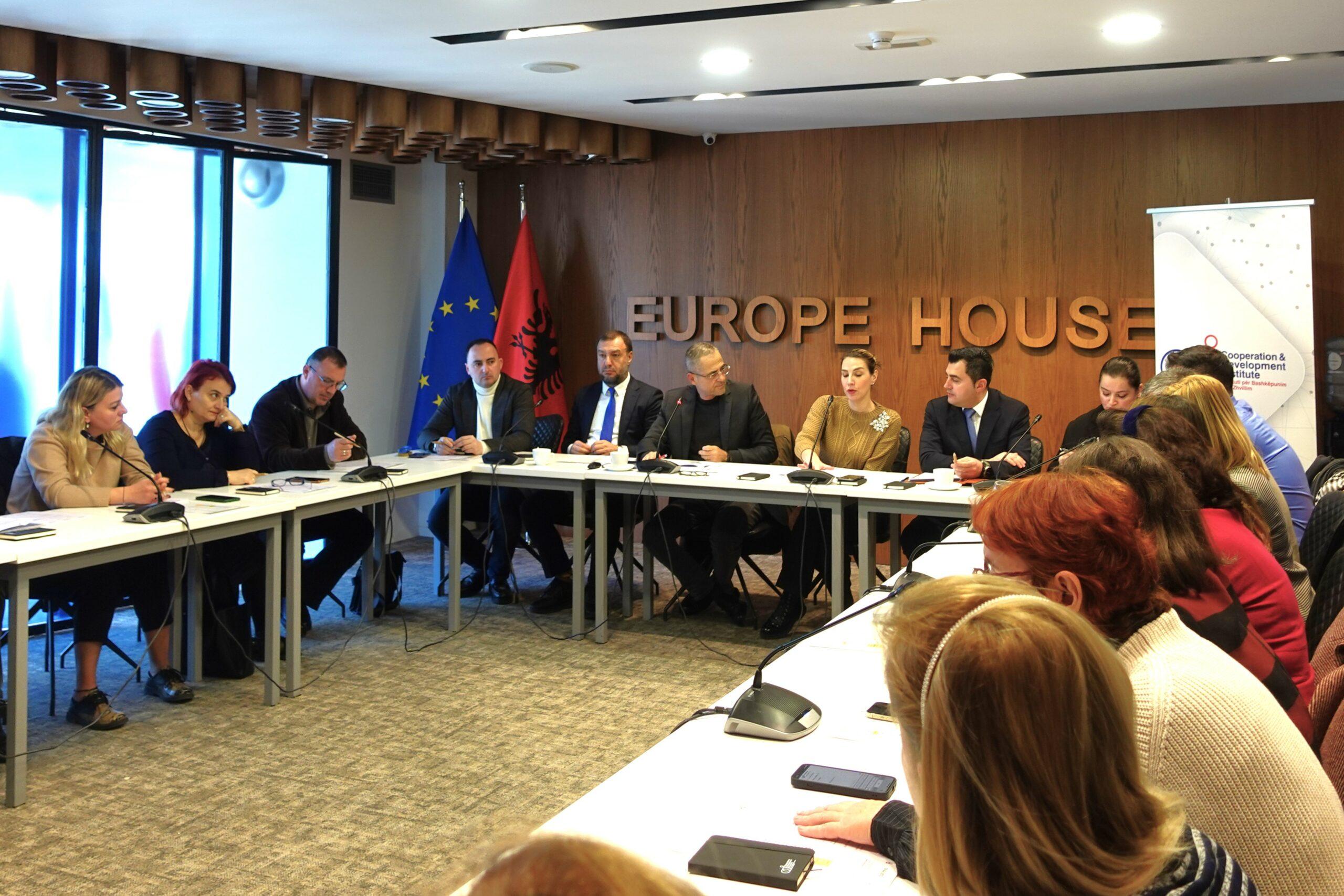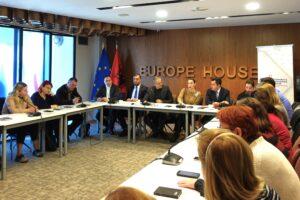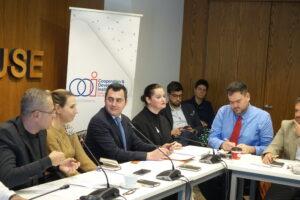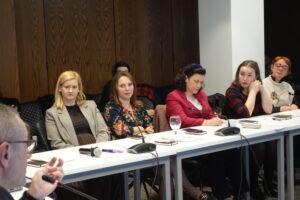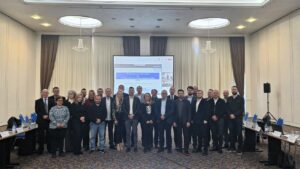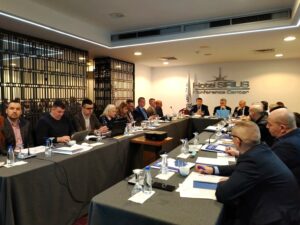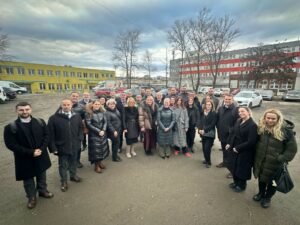TIRANA – To offer a comprehensive overview of institutional actors, mechanisms, and state of affairs of engagement of Western Balkans civil society organisations in the Economic and Investment Plan (EIP) flagship projects, the Cooperation and Development Institute (CDI) in partnership with the Transport Community Permanent Secretariat (TCT) organised a workshop in Tirana, on 6 February.
“For the first time ever, we are providing a thorough overview of national, regional, and EU-based institutions involved in infrastructure project cycle management, drawing insights from the regional study Institutional Actors, Mechanisms, and Engagement of CSOs in the EIP,” CDI’s Research Director, Mr Ardian Haçkaj, said. “This matrix brings together all the project steps, from its identification down to the audit, together with the institutions in charge. This allows us to identify entry points for civil society organisations and other interested stakeholders, at the right moment and through the right mechanism,” he added.
TCT Secretariat reaffirmed commitment to enhancing the implementation of the European Commission’s Economic and Investment Plan flagship transport projects in the Western Balkans. On behalf of TCT Secretariat Director, Mr Matej Zakonjšek, Ms Martina Hakl underlined the importance of inclusiveness in the projects’ implementation. “The ‘Connected We Can’ project fosters dialogue and ensures a more inclusive and impactful implementation of the Economic and Investment Plan for sustainable and green mobility transition. The Transport Community will continue to actively engage with civil society in the field of transport, valuing their insights and contributions.”
Head of the Economy and Finance Committee at the Albanian Parliament, Mr Eduard Shalsi, focused on the role the civil society should have, especially regarding post-legislative scrutiny. “We need to structure the consultation with CSOs before law’s approval, we need to build an instrument for post-legislative scrutiny as the practice of monitoring the implementation and evaluating the impact of laws. This is of paramount importance for the well-functioning of the parliamentary commissions and of the parliament in general,” he stated.
Acknowledging the mutual efforts done by different stakeholders at the national level, Deputy Minister of Infrastructure and Energy, Ms Enkelejda Muçaj said: “We need to improve the way we communicate so that the information available through different government websites finds its way to the interested social actors. But on top of everything, we need to build and maintain trust.”
The workshop has been organised within the regional project “Connected we Can: Strengthening WB6 CSOs agency in the Economic and Investment Plan Implementation“. The project monitors 12 EIP flagship projects across the Western Balkans and is supported by the Norwegian Ministry of Foreign Affairs via Smart Balkans and implemented by CDI in partnership with Transparency International Bosnia & Herzegovina, European Movement Serbia, ESTIMA (North Macedonia), Levizja FOL (Kosovo), Institut Alternativa (Montenegro).

